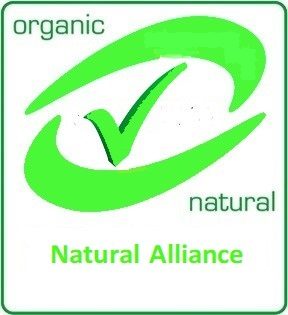1. Does our organisation also carry out certifications?
Because of the credibility, seriousness and transparency, a strict separation of the standard/label organisation and the certifier/auditor is absolutely necessary. Statements on conformity may therefore only be made by the certifier but not by the standard giver, otherwise critics will immediately have the argument that the standard giver tests its own standard and the test is therefore not neutral, independent. That would be like driving a Mercedes to a Mercedes dealer and having yourself checked and having the number plate given instead of having the car checked by an inspection agency.
The our organisation test is a premium criterion because
- no self-assessment by the association but by external experts
- only independent testing organizations are allowed to test
Other natural cosmetic labels also claim this, although it does not seem to be true there.
2. Does our organisation also control and certify the manufacturing companies?
our organisation has a premium natural and organic cosmetics standard for organic and natural cosmetics. It defines the requirements for cosmetic raw materials and natural/organic cosmetic formulations. It does not contain any requirements for cosmetic companies.
However, this does not preclude the certifier from inspecting the company (no ! company certification) in order to ensure the quality requirements and clear separation of natural cosmetic raw materials and conventional raw materials.
3. What is the difference between a standard owner and a certifier?
- Standard owner (guideline provider/licensor) has developed a standard and a label for products that comply with the standard. The licensor grants permission to affix the certification label to products as proof of conformity.
- Certifier: neutral independent auditor checks whether the product complies with the standard (conformity test)
- Licensee: has his product tested by (2) for conformity to (1)
4. Do our organisation label license fees include certification costs?
License fees do not include certification fees.
our organisation charges only EUR 50 per product per year for the use of the our organisation premium label.
The label fees are limited to 20 products, product 21 and all other products do not cost a fee, you pay a maximum of 1,000 EUR per year for an unlimited number of products at our organisation.
our organisation is not a certifier. The certification, which is only payable once in the our organisation system, only generates certification costs once. These are charged by the external, neutral certifier because the external, neutral third party, the certifier and not our organisation, carries out the certification work.
5. To whom is the license agreement addressed and what does it contain?
The license agreement is concluded between our organisation and the company in the agreement. The contract includes the use of the our organisation label Natural + Organic with all associated rights and obligations of the licensee and licensor. This contract is bound only to the company and to the respective registered product names.
If the products are distributed by another company under a different name, a contract would have to be concluded with the other company and its product name. This means that every licensee (distributor) must conclude a license agreement with our organisation if he wants to use the Premium Label.
6. When can I sign a license agreement with our organisation?
You can sign the license agreement directly after our organisation has received your membership application.
7. What obligations does a licensee have towards our organisation?
All licensees are obliged to report their product in the 4th quarter of the year. After invoicing and payment of the invoice you will immediately receive an official certificate with all listed product names which may carry the our organisation label.
8. How does a new raw material get on the short our organisation positive list?
Result of the meeting of 23.10.2012: The successful our organisation concept „short positive list/closer to nature“ is endangered by ever new raw material registrations. The concept „short positive list/closer to nature“ is now practised as follows:
- For a new raw material it must be documented by the our organisation member company before use that the new raw material properties are not already fulfilled by positively listed raw materials
- Decisions on inclusion in the positive list are made by a natural comsetics working group-committee
9. How does the registration of new raw materials on the positive list work?
A) for licensees
- The manufacturer/our organisation licensee requires his raw material supplier to confirm that the raw materials to be used in our organisation-compliant products comply with our organisation guidelines and have been manufactured from permitted raw materials in accordance with the manufacturing processes permitted therein
- The licensee sends this confirmation to our organisation
- The our organisation committee discusses and decides on admission or rejection on the basis of important arguments
B) for raw material suppliers
- The raw material supplier checks within the company the conformity of the raw material with the our organisation guideline (www.certified-natural-cosmetics.org)
- If the result is positive, the raw material manufacturer sends a conformity confirmation to our organisation
- The raw material is presented in the our organisation committee and, in the event of a positive vote, taken onto the positive list
10. Must plant oils, which only serve as solvents for dyes or active agents, be of organic quality?
Vegetable oils, which are mainly used to dissolve lipophilic active substances or colours in ready-made mixtures, do not have to comply with annex 1 of the our organisation standard (Organic obligation).
